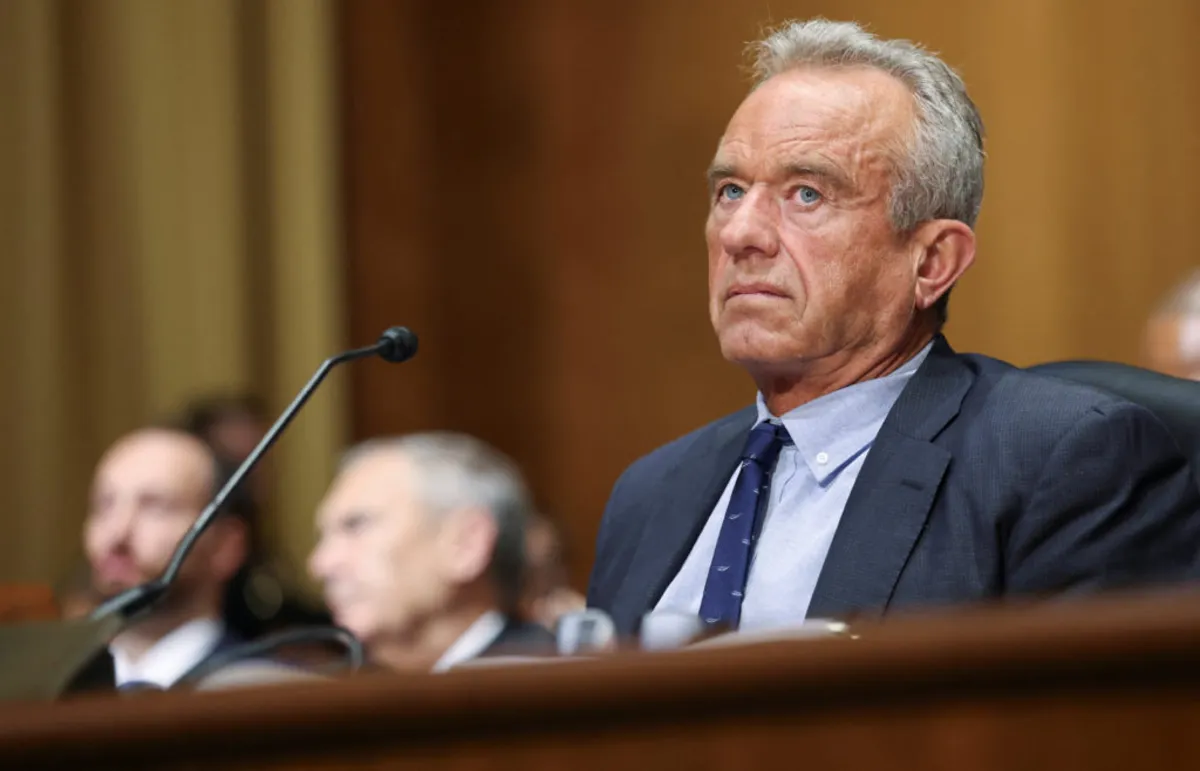
In a heated exchange during his testimony before the Senate Finance Committee on September 4, U.S. Health Secretary Robert F. Kennedy Jr. faced sharp criticism from several senators regarding his recent statements on the COVID-19 vaccine. This scrutiny arose after Kennedy previously assured the public in November that he would not “take away anybody’s vaccines.”
Senator Elizabeth Warren (D-Mass.) questioned Kennedy directly, asking, “Did you hold up a big sign saying that you were lying when you said that?” Her inquiry highlighted the inconsistency between his past commitments and the recent COVID-19 vaccine guidance issued by the U.S. Food and Drug Administration (FDA). As of August 27, the guidelines restrict the updated vaccine to individuals aged 65 and older and those aged 6 months and older with underlying health conditions that elevate their risk of severe COVID-19 infection.
Kennedy pushed back against concerns about vaccine availability, stating, “Anybody can get the booster,” while adding, “it’s not recommended for healthy people.” Warren responded, emphasizing that if the vaccine is not recommended, it may hinder access in many states, noting that insurance companies might not cover the associated costs, which can exceed $200.
The debate continued as Kennedy insisted, “It depends on the states... But they can still get it. Everybody can get it, senator.” However, the reality surrounding COVID-19 vaccine availability is more complex than Kennedy's assertion suggests. The Health and Human Services Department referenced a social media post from Kennedy stating, “These vaccines are available for all patients who choose them after consulting with their doctors,” but this claim is misleading.
Under the current guidelines, healthy individuals under the age of 65 may require a doctor's prescription to receive the vaccine. Even if they obtain a prescription, they might need to cover the costs out-of-pocket, complicating access further.
The FDA's approval is merely the first step in making the vaccines available to the public. The Advisory Committee on Immunization Practices (ACIP), which guides vaccine policy, has yet to vote on or provide current recommendations. Typically, the Centers for Disease Control and Prevention (CDC) relies on ACIP’s guidance to recommend vaccines, which directly impacts insurance coverage and pharmacy availability.
Notably, federal law mandates that most health insurance plans fully cover vaccines recommended by the CDC. However, some states require CDC recommendations before allowing pharmacies to offer vaccines over-the-counter. This leaves many individuals in limbo regarding access to the COVID-19 vaccine.
In a controversial move, Kennedy dismissed all 17 members of the CDC’s immunization advisory committee in June, appointing new members who have voiced antivaccine sentiments. The CDC’s Director, Susan Monarez, was also fired on August 27 amid a dispute over vaccine policy. The advisory committee is scheduled to meet on September 18 and 19, which could significantly influence future vaccine access and recommendations.
The availability of the COVID-19 vaccine varies significantly by state. Even individuals in FDA-approved groups may face challenges in scheduling vaccinations due to state regulations. In 18 states and Washington D.C., pharmacists are unable to administer the vaccine unless it is included in the CDC immunization schedule. This has resulted in several pharmacies, like Walgreens and CVS, notifying patients that they cannot schedule COVID-19 vaccine appointments due to state restrictions.
While individuals not included in the FDA-approved categories are not explicitly banned from receiving the vaccine, they may encounter various barriers. Physicians can legally prescribe the vaccine off-label, which is a common practice, especially in pediatrics. However, this requires a doctor’s appointment and potentially substantial out-of-pocket costs.
Moreover, if the CDC’s guidelines allow pharmacists to vaccinate individuals outside the FDA-approved groups, it would be through a method known as “shared clinical decision making.” This means that individuals could discuss vaccine options with their healthcare provider to determine if they should receive the vaccine, depending on their health status and circumstances.
Insurance coverage for the COVID-19 vaccine remains uncertain and will largely depend on the CDC's upcoming recommendations. Coverage is more likely for individuals in FDA-approved categories, but if the CDC includes healthy individuals through shared decision-making, insurance companies generally honor those prescriptions.
In summary, Kennedy's assertion that “everybody can get” the COVID-19 vaccine overlooks critical facts about the current limitations on access and insurance coverage. While the vaccine is not banned outright, significant barriers exist for many individuals seeking it. The ongoing discussions and upcoming CDC recommendations will play a crucial role in shaping the future of COVID-19 vaccination access and availability.
As it stands, we rate Kennedy’s statement as Mostly False, considering the complexities surrounding COVID-19 vaccine access and the current limitations imposed by federal and state regulations.